Can saucepans be recycled? What to do with your old pots and pans when you're having a kitchen declutter
Sell, donate, recycle or repurpose old saucepan and give them a new lease of life
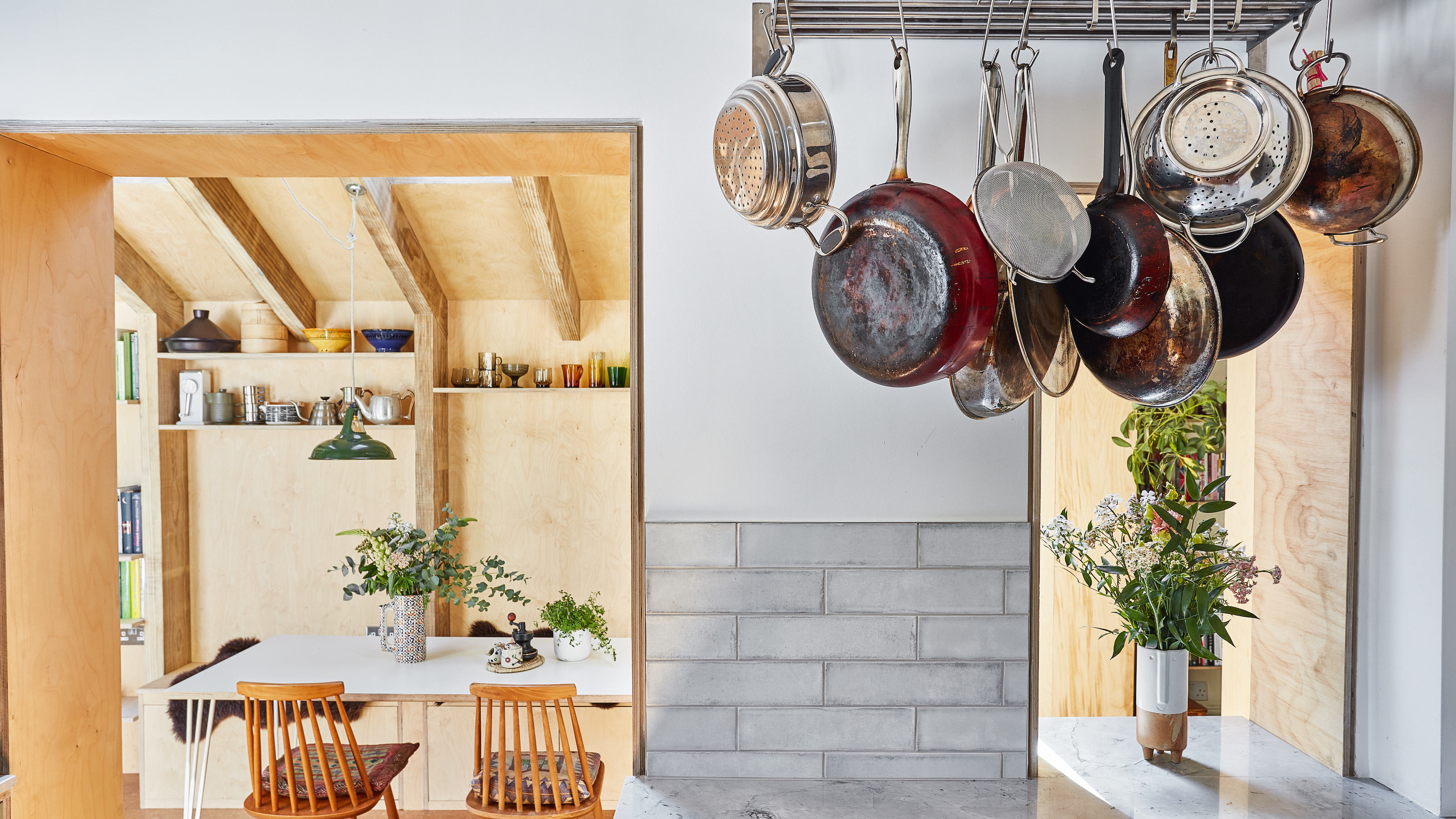

If you're one of those people who loves to cook, no doubt your saucepans take a bit of a battering in the kitchen. Eventually, there will come a time when they need to be got rid of. However, not all saucepans can be recycled, as it all depends on what your saucepans are made of.
While some of the best saucepan sets can last for years with the right care, all pans have a shelf life. Stainless steel and cast iron pans have a great reputation for longevity and should last you for decades, while non-stick saucepans tend to have a shorter lifespan of around three to five years, depending on how they are cared for. Over time, the non-stick coating can deteriorate, meaning they need to be replaced.
Even though your saucepans might be past their best for cooking, there are other ways to repurpose them around the home. Below, we've gathered our favourite tips for disposing of and recycling saucepans, or repurposing them into something else entirely.
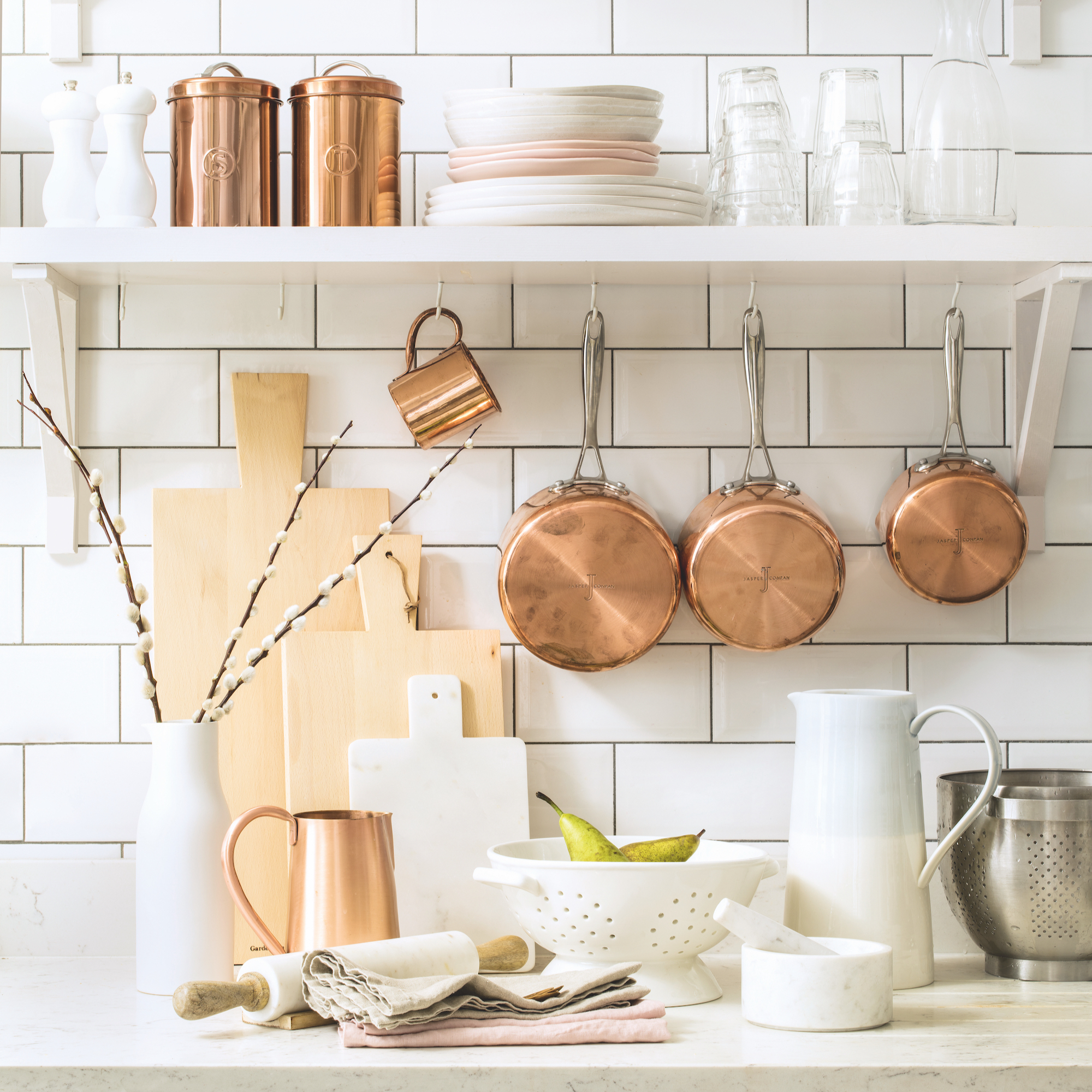
Which saucepans can be recycled?
Saucepans come in a wide range of materials, some of which are recyclable and some which aren't, as Hannah Richards, brand manager at Stellar explains.
'Saucepans can generally be recycled but it depends on the material they’re made of. Entirely stainless steel, aluminium or copper pans can usually be recycled at recycling centres that accept metals, or collected by scrapmen. Although, recycling saucepans with a non-stick or ceramic coating and plastic handles is not usually possible without the coating or handles being prior removed.'
Where can saucepans be recycled?
The best place to start is by checking with your local recycling centre about what materials can be recycled there. Check your local authority website and find your nearest recycling centre and see if they accept the material you want to recycle. Before you make a trip to your local recycling centre, remember that you may need to book a slot in advance.
Another great way of checking where saucepans can be recycled is by visiting the Recycle Now website. Follow the link 'Recycle an item' and you'll have the option to search for the item you want to recycle, along with your postcode. It then gives you handy information about whether you can put items out with your household recycling or if you need to take them to your local recycling centre (it will also show you your closest one).
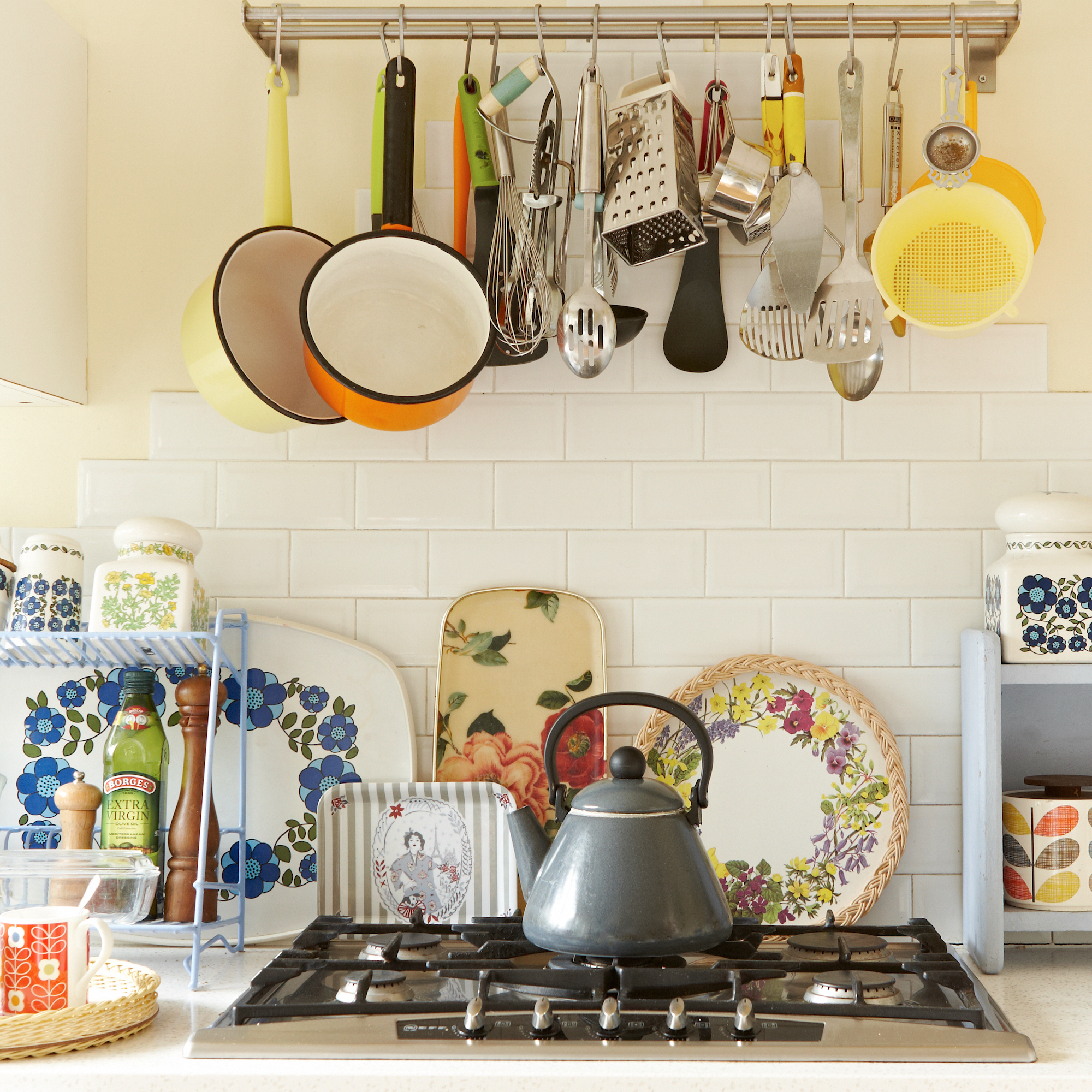
Other ways to dispose of saucepans
If there's still a bit of life left in your saucepans, maybe you've updated your cookware and treated yourself to a new set, there are a few options for rehoming them that don't involve a trip to the recycling centre.
1. Donate to charity
First stop, try your local charity shop and see if they accept secondhand saucepans. 'Just don’t donate anything that can’t be used for its intended purpose or a non-stick pan that has a damaged non-stick coating,' explains Sarah Dempsey, cleaning/organising expert at MyJobQuote.co.uk.
2. Sell them online
If you want to sell your saucepans – maybe you want to put the money towards buying the best cast iron pans instead – it's worth seeing if you can sell your old saucepans.
'There are plenty of online platforms that you can use to sell your old saucepans. However, it’s important that they are in good condition and safe to use,' explains Sarah. 'You could try eBay, Gumtree, Preloved, Facebook marketplace or local social media groups. Make sure to include clear photos and proper descriptions of your saucepans including their size.'
Be honest about the condition of your saucepans to any buyers to prevent any problems with the sale and bear in mind that delivery can be costly if you have to post them out.
'You can sell saucepans online on sites like Gumtree, Facebook Marketplace and Ebay. However, saucepans can be large in size which makes them difficult to deliver, so it’s often easier to sell them on Gumtree or Facebook Marketplace as you can arrange local collections,' explains Ryan Kaila, category manager for waste and recycling at Kingfisher Direct.
3. Give them to community projects
It also might be worth checking with local schools and community garden projects to see if they can make use of them. Even if they are passed their best for cooking, they can still be used to make quirky bird baths or planters.
4. Check if they can be refurbished
Even if your saucepans have seen better days, they might not be destined for the scrap heap. Some metal saucepans can be refurbished or recoated, giving them life for years to come.
'If you have a non-stick pan, you could contact the manufacturer and ask if they recoat the pans,' explains Sarah. 'Some do but you should check the cost as it may be cheaper to buy a new pan.'
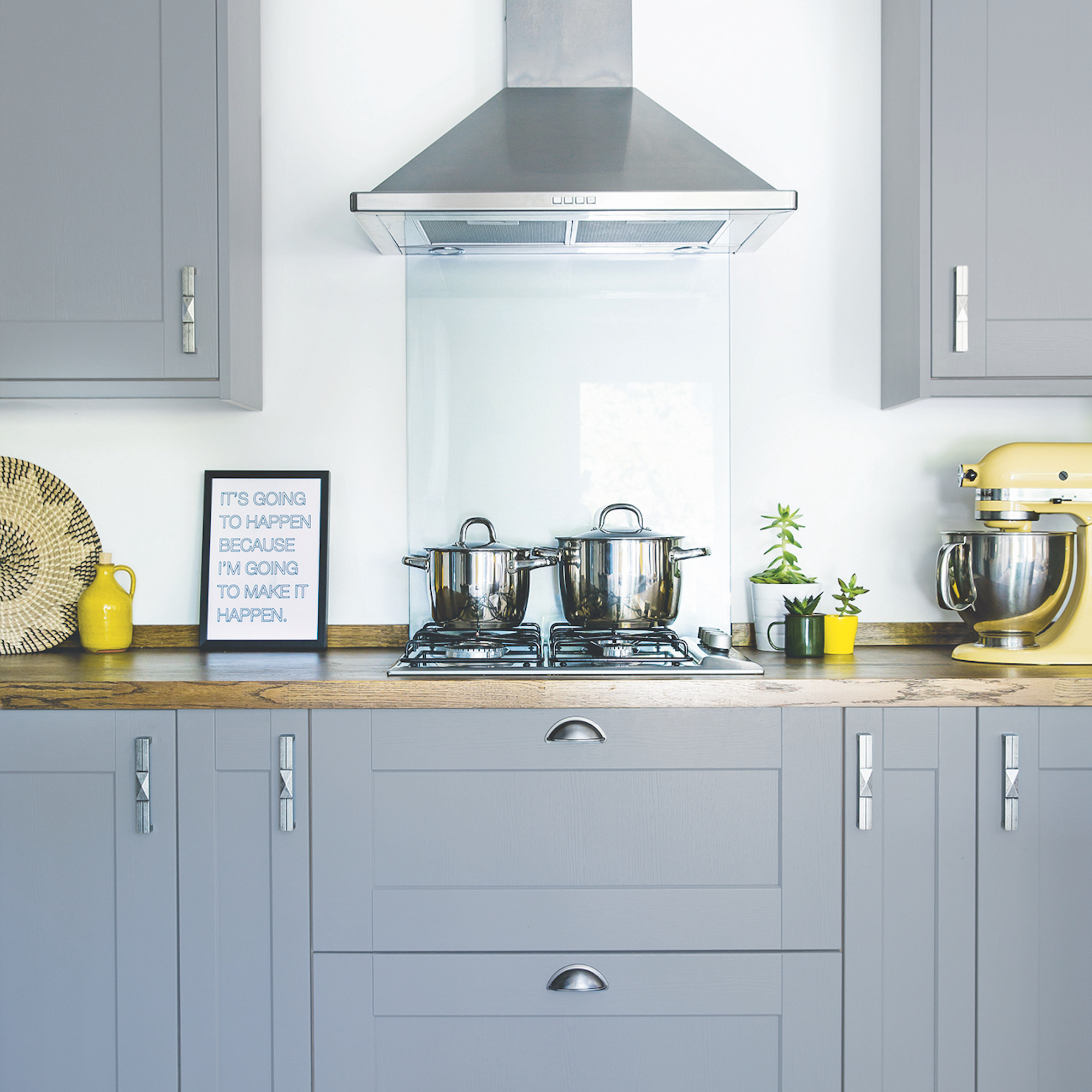
How to reuse saucepans at home
When the time comes to replace your saucepans, you can repurpose them around the house or garden instead. If you've got little ones at home, why not set up a mud kitchen in the garden and let them use old saucepans while they play.
On the other hand, if gardening is your thing, why not get creative and use them to make planters, as Paul McFadyen, metals expert and chairman at metals4U explains: 'Old pots and pans can make for perfect garden planters; just drill a few holes in the bottom for water drainage. They are especially good for smaller plants like herbs and succulents that don’t have large root systems, and they add a uniquely rustic look to your garden.'
They also make handy water bowls for animals and pets while they're outside. 'You could also turn your shallow pans into birdbaths to encourage wildlife into your garden,' adds Paul. 'The metal material should be durable in different weather conditions and the smooth surface can be easily cleaned with soap and water, unlike many cement birdbaths.'
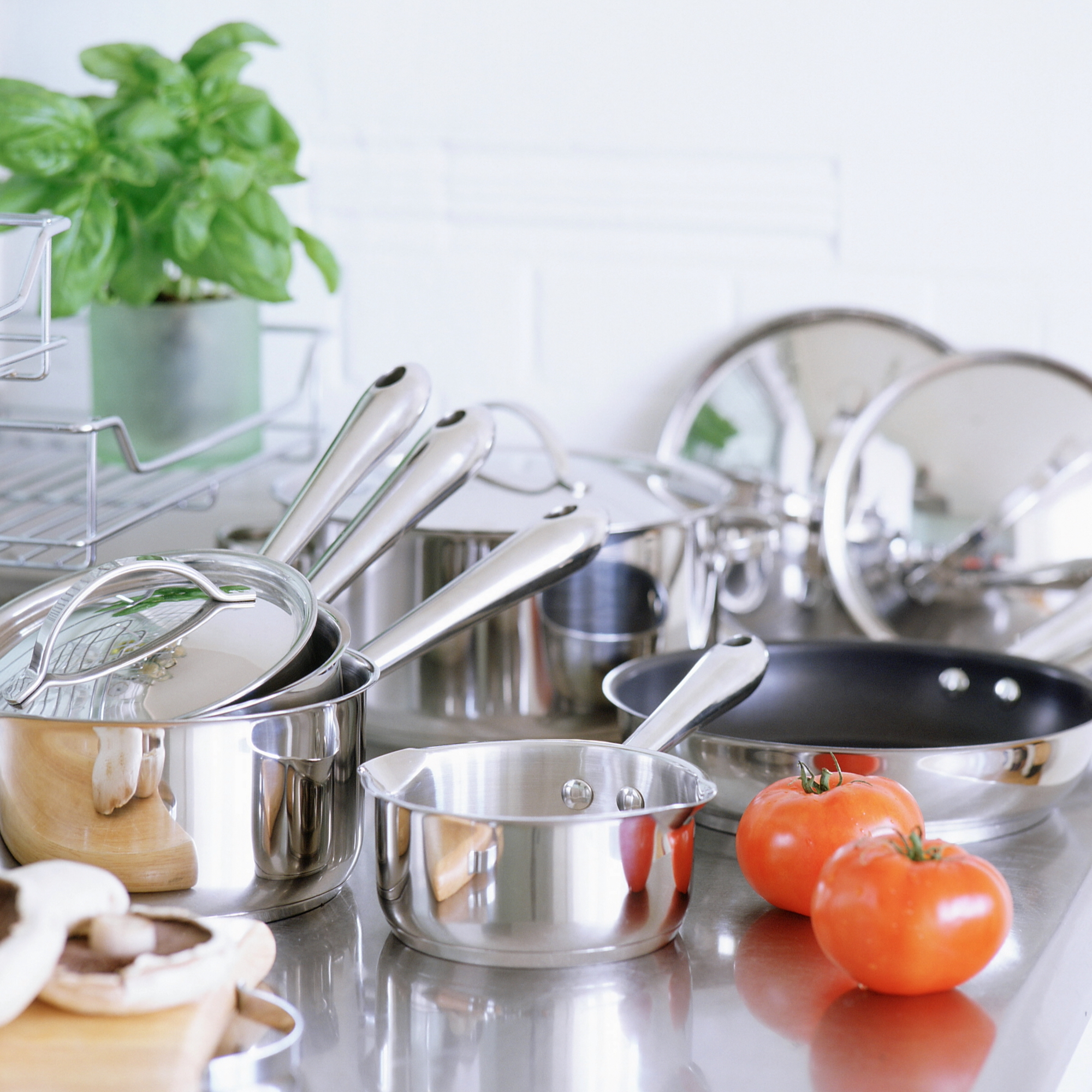
Do charity shops take saucepans?
Yes they do, just make sure they're in a usable condition, as Allison Swaine-Hughes, retail director at the British Heart Foundation, explains: 'As the largest charity retailer in the UK, we are always delighted to accept donations of quality pots and pans that can be resold in our shops or during one of our many pop-up fresher events we run each year at universities across the country.
'Whether it’s a wedding gift that hasn’t made it out of the box, or a pan that has sat in your kitchen having never gotten around to making that paella, we’re incredibly grateful to receive them. If you’re considering donating items to us, we kindly ask that they’re in a saleable condition. All the money raised in BHF shops help fund our life saving research into heart and circulatory diseases.'
Do scrapmen take saucepans?
Depending on the type of metal, your local scrapman might accept it. 'You can typically take your unwanted pots and pans to a scrap metal facility where they can be recycled,' says Paul. 'Again, it’s best to check beforehand what metals they will accept and if they require any preparation before you drop them off. This is a great way to ensure that your old cookware doesn’t just end up in landfill.'
Another option is getting your local scrapmean to collect from you. Check on local Facebook groups for recommendations. 'They can recycle the metal for scrap, so you can contact a local scrap collector to arrange pickup or find a local scrap yard. Many people leave piles at the bottom of their driveway for scrapmen to collect.' advises Lucas Hargreaves, project director at Recycling Lives Services.
Whether you're going to sell, donate or recycle your old saucepans, there's plenty of ways to give them a new home or purpose.
Get the Ideal Home Newsletter
Sign up to our newsletter for style and decor inspiration, house makeovers, project advice and more.

Amy Hodge has been working on interiors magazines for over 11 years. She's a freelance writer and sub editor who has worked for some of the UK's leading interiors magazines including Ideal Home, Style at Home and Country Homes & Interiors. She started at Style at Home just after it launched as food editor and is now chief sub editor for Ideal Home, Style at Home and Country Homes & Interiors.
You must confirm your public display name before commenting
Please logout and then login again, you will then be prompted to enter your display name.
-
 What colours make a small bedroom look more expensive? 7 shades, recommended by the experts
What colours make a small bedroom look more expensive? 7 shades, recommended by the expertsGive your bijou bedroom a luxury look with one of these transformational shades
By Holly Walsh
-
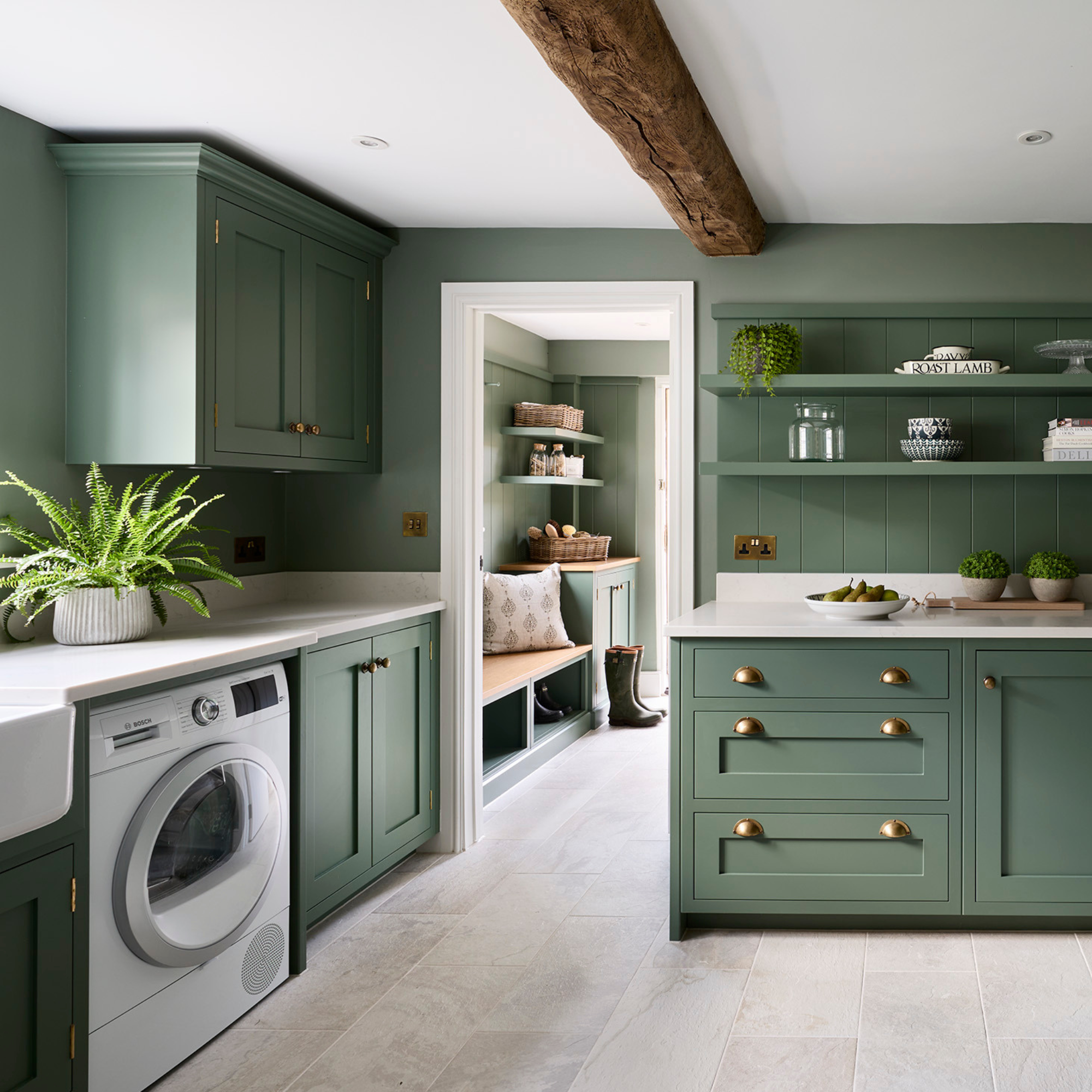 5 reasons to use Farrow & Ball 'Green Smoke' in a kitchen – the earthy tone that's on trend for 2025
5 reasons to use Farrow & Ball 'Green Smoke' in a kitchen – the earthy tone that's on trend for 2025Could this be the perfect shade for your kitchen?
By Holly Walsh
-
 The 8 things you didn't know you could pressure wash and how to clean them the right way, according to experts
The 8 things you didn't know you could pressure wash and how to clean them the right way, according to expertsPressure washers are great for patios, but what else can you wash with them?
By Sophie Warren-Smith